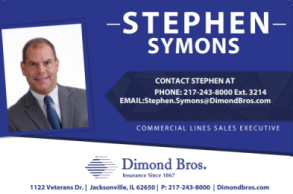Governor J.B. Pritzker revealed today expanded worker’s compensation rules to cover Illinois’ essential workers during the COVID-19 pandemic. Pritzker said that the workers covered by the expansion of worker’s compensation rules was an expansion on a list of occupations provided by the Department of Homeland Security. Pritzker’s list expanded upon it in his executive stay at home order. “We started with the people that we thought were very much on the very front lines – the people who are literally interacting daily with someone potentially with COVID-19. Is it something that the Worker’s Comp Commission could expand to other areas? Yes. We felt like that the people on the very front lines and most exposed – those are the people that we want to make sure got covered first.”
The rules say that all workers deemed essential by the governor’s executive order who come down with COVID-19 will be reasonably presumed to have caught the virus at work and be eligible for worker’s compensation benefits.
The Illinois Employer Community opposed the change by the Worker’s Compensation Commission saying that it will cause severe financial harm to businesses and workers. They say it will further cause the closure of business because of the payment of more claims due to the limited burden of proof that contraction of the virus happened on the job. The Employer Community said that only by an act of legislation could the rules be implemented and called the governor’s emergency rule illegal and an overreach of his office.
When asked about the overreach today during his daily COVID-19 press conference yesterday, Pritzker said that it needs to happen to protect Illinois’ workers under the current emergency orders.
The Employment Community further said in a press release that the “emergency rule” was adopted with less than 24 hours’ notice and set a disturbing precedent because it may be in violation of the Illinois Open Meetings Act while making substantive rule changes outside of the legislative process. The Employment community has not said whether it will pursue legal action to stop the order.




